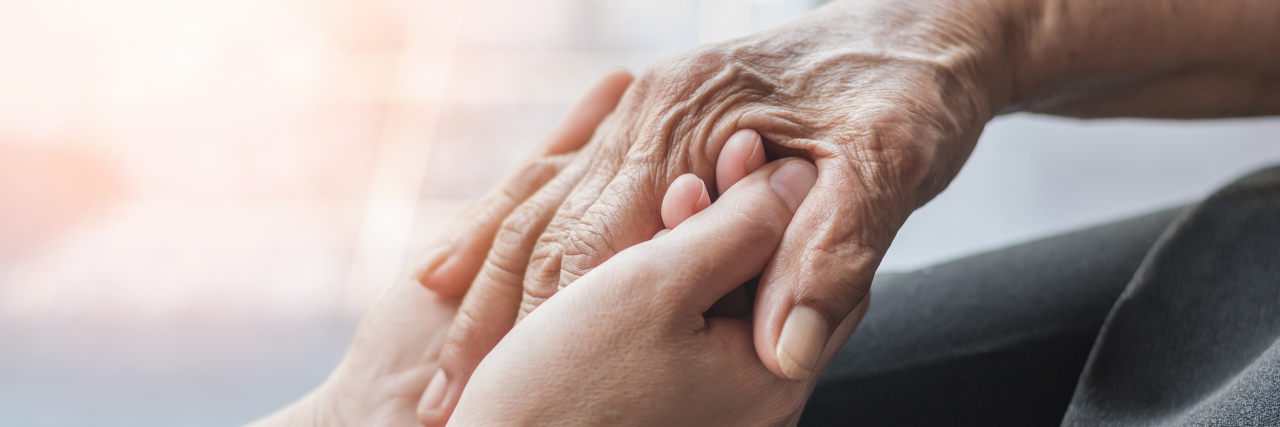My mom’s mom, my grandma, used to save money and she would jokingly say that it was for a trip she would take to Bermuda. Then when an emergency would come up, if she had to use her vacation money, she would say, “There goes my trip to Bermuda.” I was little, she was ill and I didn’t know what or where Bermuda was or what it meant. Now I know she was talking about meeting the moment.
- Find helpful worksheets and self-care tips in our Digital Toolkit for Caregivers.
Meeting the moment can mean different things. It can include how we face the social, spiritual and financial changes that serious illness and caregiving bring to our lives.
Grandma was always sick, so my mom let her live with us. Later, when I was still little my grandma was diagnosed with end-stage cancer. She had a huge family that lived in the area, and no one helped with anything. Everyone had a reason why they couldn’t help out or even come visit. This was in the ’70s before hospice was an option like it is today. My mom was Ms. Career Woman so she hired a neighbor to stay home with grandma while I was at elementary school, partly for grandma and partly so I would not come home and find grandma in a bad way. My mom was in her late 20s, looking back it is amazing to me that she handled things the way she did.
My mom took a lot of criticism from people (the same people who could never come by to visit), about hiring someone to sit with grandma during the day. I did not think much of the neighbor being there at the time, because my mom always seemed to find a way to make things work out. Looking back, it seems like a brilliant idea, long before “caregivers” were an option like they are today. When mom was home, she helped grandma with whatever she needed, and sometimes when she was in the hospital we would go to the hospital every day and visit. It’s just what we did.
Usually, insurance does not pay for private caregivers, especially non-licensed (non-RN) so people choose to pay for that out of pocket if they have to. Like paying for a babysitter or a nanny or private daycare for small children. Home health nurses are not caregivers. They visit the patient to perform specific tasks and then they leave to see another patient.
The role modeling for independence and caregiving started early for me as I watched my mom handle things and as she allowed me to help with tasks I could do. My mom was an excellent daughter and an excellent mom.
When it was mom’s turn, my dad and I did everything for her. While it wasn’t easy, in time I came to see this as a way to repay a debt of gratitude to her. I also came to realize that everyone is not cut out to do this. I let go of any expectations of those who could not find time to come around and visit or offer to help out. I knew it would not do any of us any good to hold on to negativity, and I had to accept the fact that everyone was not going to meet the moment the same way. I didn’t want to have regrets about not being there for my family so I rearranged my life and priorities accordingly and stepped into the moment as best as I could for however long it was going to be.
At the time of my mom’s diagnosis, I was already working full-time and in college full-time. Rearranging the little free time I had meant delegating certain things like housework or cooking to others, and limiting my social life. I asked my friends to please understand that I needed the time with my family.
Those years taking care of my mom were so important for us. It brought our family closer and we found ways to enjoy the time together. Sometimes people would tell me to take more time for myself, and I realized I felt guilty just at the thought of doing something fun out of the normal routine and not
being there if an emergency came up. I felt terrible guilt. I felt I would be judged for doing something for myself. People will judge regardless but I felt I would be judged more than usual. I had to make my peace with this.
Managing the day-to-day became easy. What was difficult was not knowing how long an illness would go on, and watching your loved one struggle with all the unknowns of pulmonary hypertension. This was the difficult thing. The unknown is not easy.
Getty image by Chinnapong

